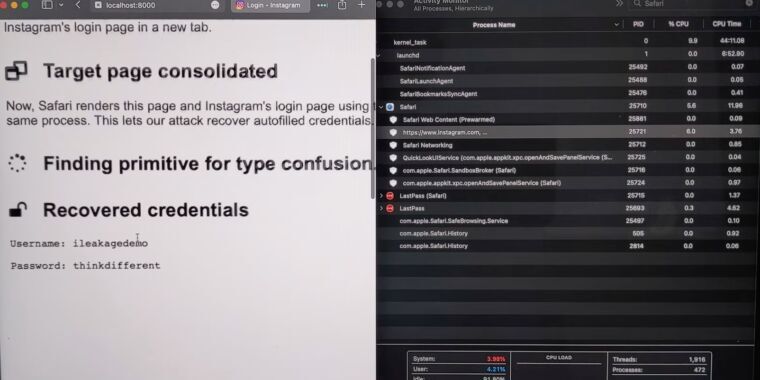- cross-posted to:
- technology@lemmy.world
- cross-posted to:
- technology@lemmy.world
Researchers have devised an attack that forces Apple’s Safari browser to divulge passwords, Gmail message content, and other secrets by exploiting a side channel vulnerability in the A- and M-series CPUs running modern iOS and macOS devices.
iLeakage, as the academic researchers have named the attack, is practical and requires minimal resources to carry out. It does, however, require extensive reverse-engineering of Apple hardware and significant expertise in exploiting a class of vulnerability known as a side channel, which leaks secrets based on clues left in electromagnetic emanations, data caches, or other manifestations of a targeted system. The side channel in this case is speculative execution, a performance enhancement feature found in modern CPUs that has formed the basis of a wide corpus of attacks in recent years. The nearly endless stream of exploit variants has left chip makers—primarily Intel and, to a lesser extent, AMD—scrambling to devise mitigations.
. . .



Yeah, I hear you, fair point. I can’t recall CVE numbers off the top of my head either.
Heartbleed was also a great name, whereas iLeakage is… a choice.
I’ll probably be referring to it as ‘the latest Safari security failure’, hopefully they can ensure that description stays relevant for a few weeks.